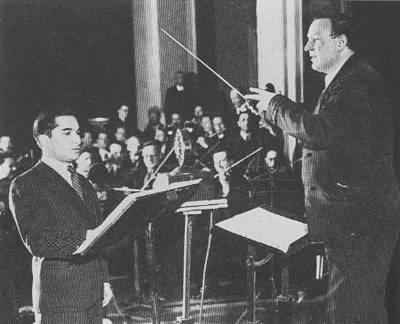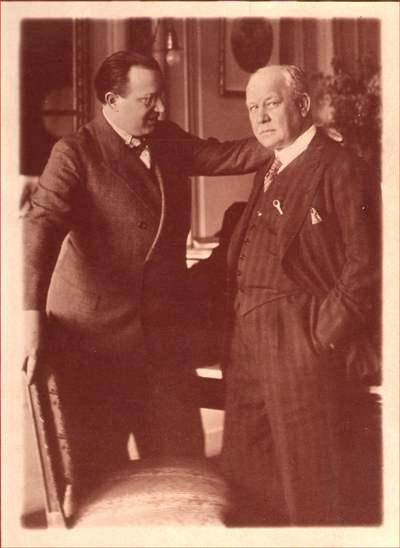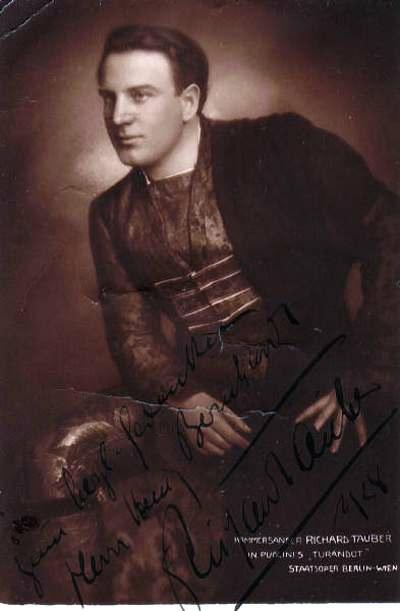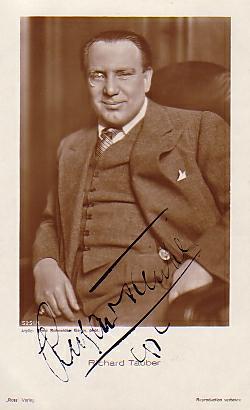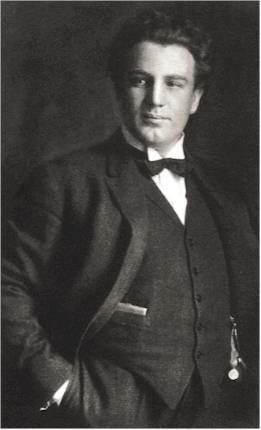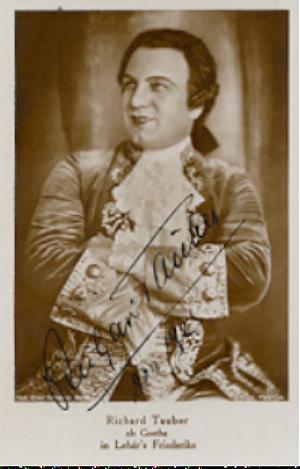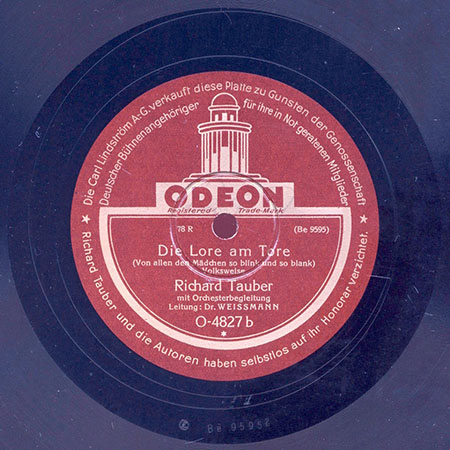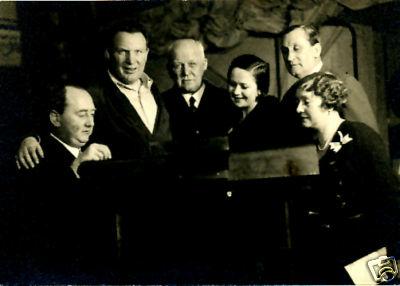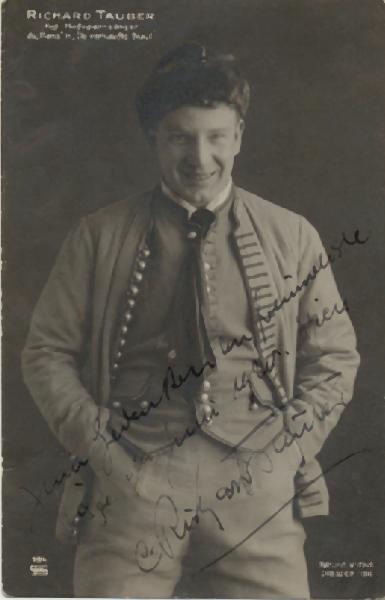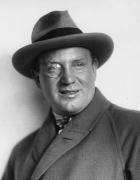Richard Tauber was born in Linz, Austria, on May 16th, 1891. His father was an actor and theatre director, his mother a
widowed actress. The boy was raised by his mother until he was seven and later by his father, who officially gave
Richard his name. Tauber's early association with the theatre no doubt contributed to the development of his
enormous musical talent.
After training with Beines, Tauber made his debut at Chemnitz in 1913 where he sang the
roles of Tamino in Die Zauberflöte and Max in Der Freischütz. He was quickly engaged for major roles at the Dresden
Opera, where he stayed until 1926 to join the Vienna Staatsoper. Within a decade, he had sung on most of the
world's great operatic stages. His sweet and superbly managed voice, full of musicianship, was especially well-suited
for the Mozartian tenor roles. Fame came almost instantly for him.
From 1923 to 1932, he also became a well-known singer of operetta,
especially the roles associated with his famous collaboration with Franz Lehár. Tauber sang the leading male roles
in the Lehár operettas – each of which traditionally included a "Tauber song", composed especially for the tenor.
Through these roles, he became the best-known and most popular singer in Germany and Austria. Unlike most of his
operatic peers at this time, Tauber had also gained a stunning reputation as both a critically acclaimed composer
and conductor. He was known to have completed an orchestral suite, two operettas and dozens of art songs.
Tauber's father had been Jewish. Unfortunately, this was enough for the Nazis to condemn him. Despite his fame and
popularity, the singer had to flee Hitler's Germany, and later, Austria. Britain welcomed him, however, and Tauber
made England his permanent home. There he continued to sing in opera and operetta, appeared regularly on radio
programs and in concerts, made motion pictures, composed, conducted and recorded. He remained in London for the rest
of his years, until his unfortunate death on Januray 8th, 1948.
Tauber, being as popular as he was, completed a total of 735
commercial recordings. Additionally, numerous private recordings and air takes are also known to exist.
His recordings include opera, operetta, art song, popular tunes and novelties. Tauber loved opera, but he
believed that popular music was also worth performing. In his later years, his concerts were divided between
serious and light music. Tauber was often criticised for his mixture of serious art with popular songs, but rather
than defiling the former, he dignified the latter. No other singer could make their performance of popular music
sound so important.
Richard Tauber made his last stage apperance as Ottavio in Don Giovanni, performed at Covent Garden
on September 27th, 1947. He had been fighting a battle with cancer for quite some time. During this final performance,
his left lung was nearly consumed by cancer, but this did not stop him from giving one of the strongest performances
of his life. Those who attended the performance or listened to the broadcast can attest that Tauber remained a great
and dedicated artist to the very last. The below duet with Cebotari (in German since it
was a guest performance of the Vienna Staatsoper) is from that evening.
